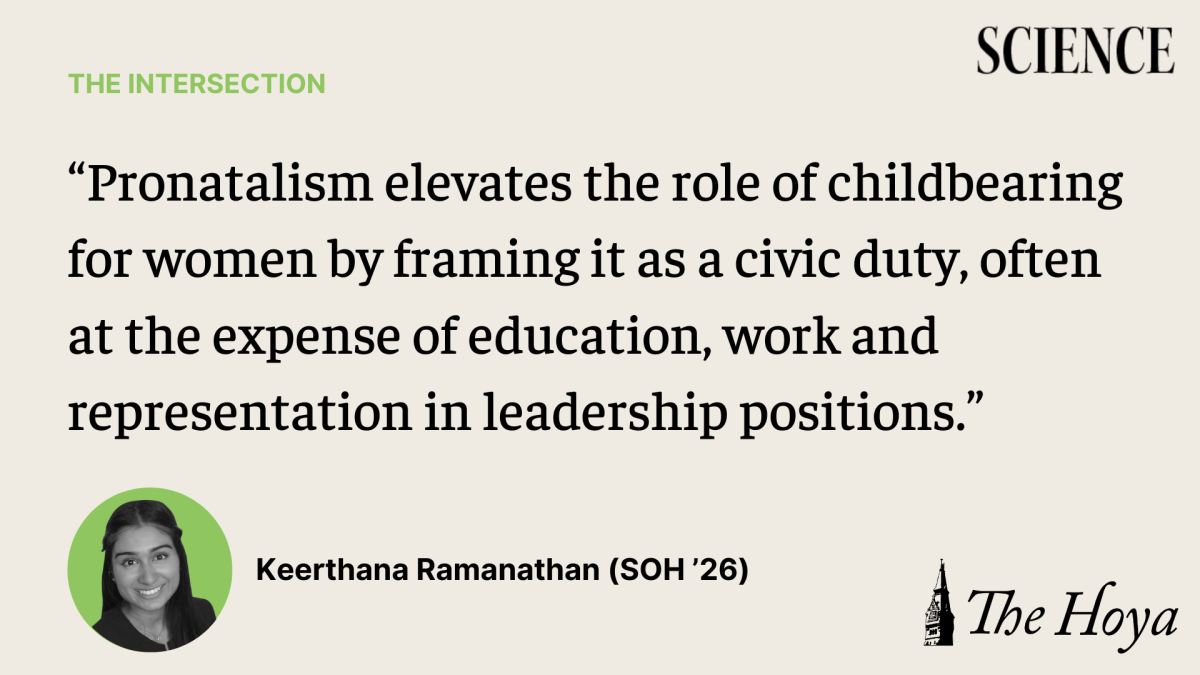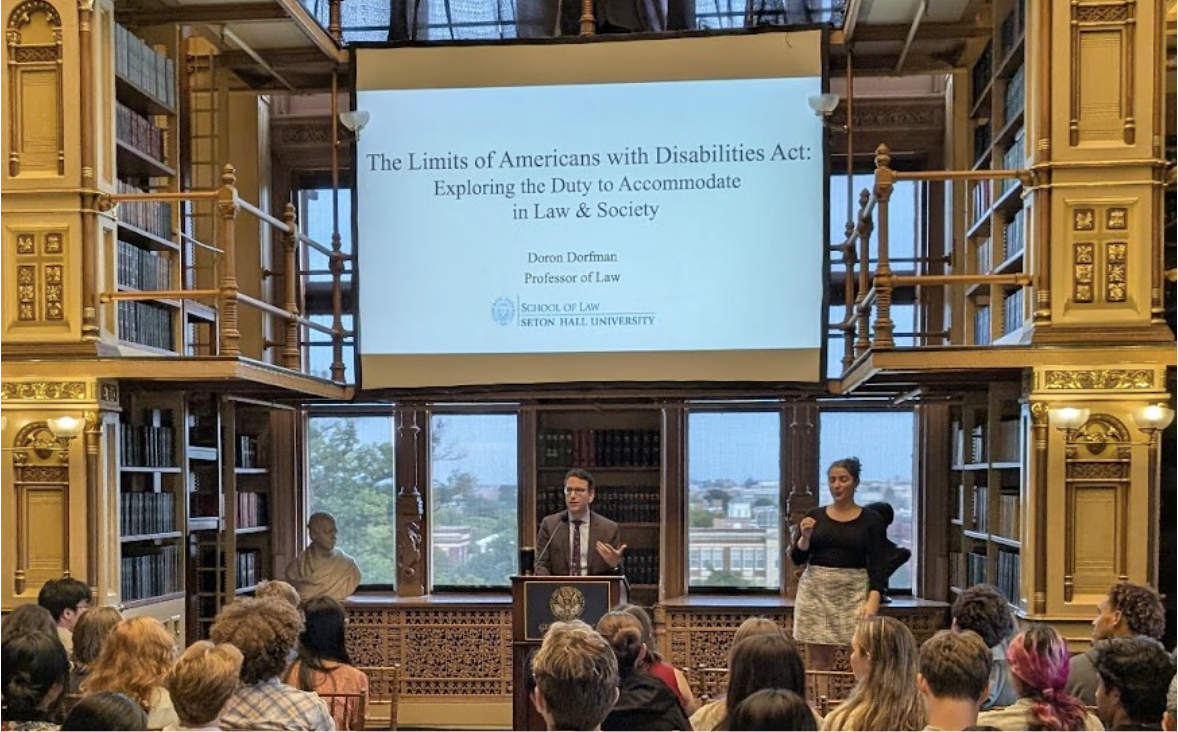One of the most pivotal issues in this year’s election was abortion access. As discussed in Minoli Ediriweera’s (CAS ’25) most recent column, every vote was cast in the context of a new post-Roe v. Wade landscape. Though always a hot topic in previous elections, reproductive rights played an enormous role in this year’s election. Why was this the case?
Behold the new wave of pronatalism.
Pronatalism is defined as “the policy or practice of encouraging the bearing of children, especially government support of a higher birth rate.” Pronatalism elevates the role of childbearing for women by framing it as a civic duty, often at the expense of education, work and representation in leadership positions. Pronatalism has been infiltrating policy and societal viewpoints in the past year, from Elon Musk calling for women to have more children for “population growth” to the “celebration of motherhood” sentiment driving parts of the anti-abortion movement.
Pronatalism isn’t a new concept, though — it is a tale as old as time. From instructions to “be fruitful and multiply” in the Bible to similar teachings in the Hindu Manusmṛti and the writings associated with Zoroaster, pronatalism has origins in many religious traditions. Historically, the Romanian government under the leadership of Nicolae Ceauşescu heavily monitored birth rates and severely restricted access to abortion and contraception. Though not as extreme, similar pronatalist principles held sway in much of the United States during the second wave of feminism that began to gain traction in the 1960s. In fact, Margaret Atwood — author of “The Handmaid’s Tale,” a dystopian novel detailing a pronatalist theocratic society — notes that she was inspired by the U.S. political climate in the 1980s, marked by Ronald Reagan-era religious traditionalism and battles against the feminist movement.
Many pronatalist policies arise as a result of demographic transition. Fertility rates have decreased tremendously globally, with over half of all countries currently experiencing a fertility rate below 2.1, characterized as low by the United Nations Population Fund, an agency of the United Nations focused on sexual and reproductive health. As a result, many governments around the world have turned to pronatalist policies to stimulate economic productivity by compensating for the aging working class. Pronatalism in the face of demographic transition, however, is comparable to putting a Band-Aid on a bullet hole, failing to sustain economic productivity in the long term.
Furthermore, the health effects of pronatalism cannot be overlooked considering the restricted abortion access implied within the idea. Such restrictions are directly associated with higher maternal and neonatal mortality. Moreover, pronatalist abortion policy deepens existing health care disparities. If abortion were to be banned in every state, it is estimated maternal mortality would increase by 24% and would disproportionately increase by 39% among non-Hispanic Black individuals. This is because pronatalist policies cause “maternity care deserts” due to the large outflux of reproductive health clinicians from areas that restrict reproductive health care access.
Beyond drastically impacting maternal health, pronatalism also greatly devalues same-sex couples and those facing infertility. Pronatalism has been shown to significantly increase rates of depression, anxiety, shame and intimate partner violence among those experiencing infertility. In addition, the pronatalist movement frequently disregards couples deemed as “nontraditional” by voting and advocating for conservative policies against same-sex couples, single parents and unmarried couples.
Pronatalism is also linked to an idea that is often swept under the rug in discussions surrounding the topic: its promotion of anti-immigrant sentiment.
The Cambridge Dictionary defines natalism as “believing that it is important to have children in order to increase the number of people in a country, especially the number of people who are not immigrants.” Historically, pronatalism has been glorified as a pillar of anti-immigrant sentiment and is often connected to nativism. Pro-nativism can act as a key mechanism for “The Great Replacement” — a dangerous theory that seeks to promote white supremacy and the erasure of the immigrant population. The roots of this sentiment can be found in eugenics, which is the belief that a so-called superior race can be created through selective breeding.
The consequences of pronatalist policies necessitate taking a stand against them, for the sake of both women’s health and the dismantling of nativism. The gradual amplification of pronatalism is a threat to our society, creating a world more and more similar to “The Handmaid’s Tale” if left unchecked.




